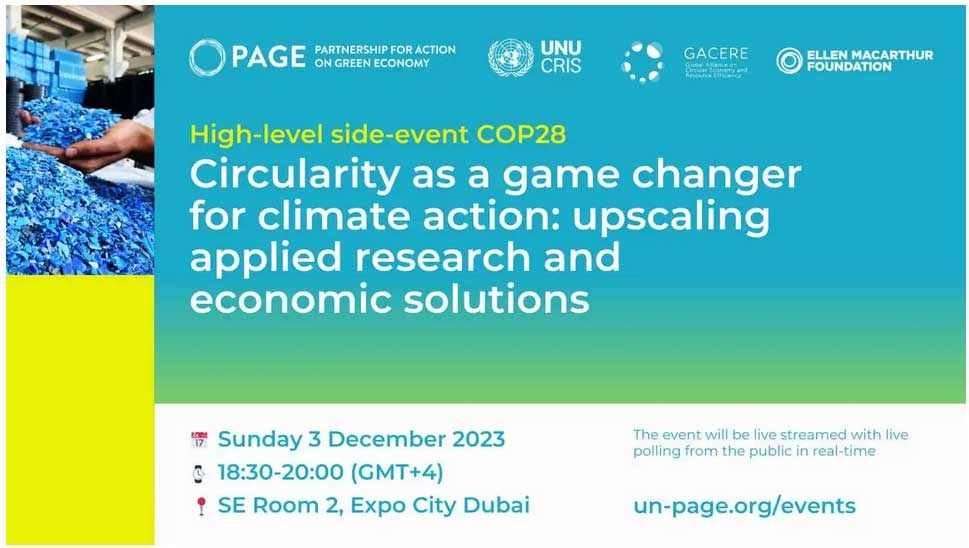Circularity is transformational, doable, and above all a means of addressing climate change.
In the frame of COP28, the EU (co)-funded actions UN Partnership for Action on Green Econony and GACERE with the Ellen MacArthur Foundation and the United Nations University (UNU) examine key challenges and opportunities of a circular economy transition and reflect on real examples of success and best practices from the research-policy space and the real economy.
Circularity is transformational, doable, and above all a means of addressing climate change. Our natural systems function in a circular way (carbon, water, and nutrient cycles). These natural cycles could and should be emulated in our economic system in order to cope with systemic challenges such as the climate crisis.
The concept of circularity continues to engage researchers, policymakers and practitioners around the globe. While policy progress has been made, particularly in area of waste management, we are a long way from a holistic and universal application of circularity as a foundation for climate action.
Meanwhile, the private sector is moving ahead, prompted by real-life economic benefits, and there are engaging examples to share and learn from both developed and developing countries.
What have we learned so far, where might innovative breakthroughs come from, and how to overcome existing barriers?
The event in Dubai will be live streamed with live polling from the public in real-time.
Date: 03 December 15:30 – 17:00 (CET)

